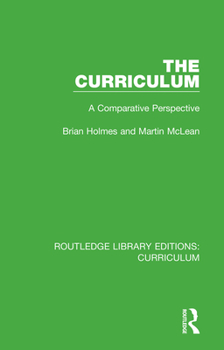The Curriculum: A Comparative Perspective
Select Format
Select Condition 
Book Overview
Originally published in 1989. What should be taught in schools? This book explores the differing curriculum traditions in Britain, Europe, the USA, Latin America, India and the Far East and the possibilities for change. For the practising teacher and the educationalist it opens up the debates about 'quality' in education which have been intense in many countries throughout the 1980s and focuses on how different countries are trying to change the curriculum to achieve higher standards and greater relevance.
Considering the age-old questions "Who shall be educated?" and "What knowledge is of most worth?", four major curriculum traditions are examined in an historical context. The authors show how some European and American practices were freely incorporated into emerging systems in other parts of the world while elsewhere curricula were transferred by imperialists to their colonies and then modified. In the first part of the book the difficulties of curriculum change are explored within the contexts of countries where the curricula are rooted in indigenous models. The second part examines countries where curricula have been transferred from other parts of the world and how this affects curriculum change. In each case the politics of educational change since 1945, when compulsory education was introduced in many countries, has been analysed.
The book will help students of education to understand the issues of curriculum reform and the transfer of curriculum models and places the problems in an international perspective with case studies.





